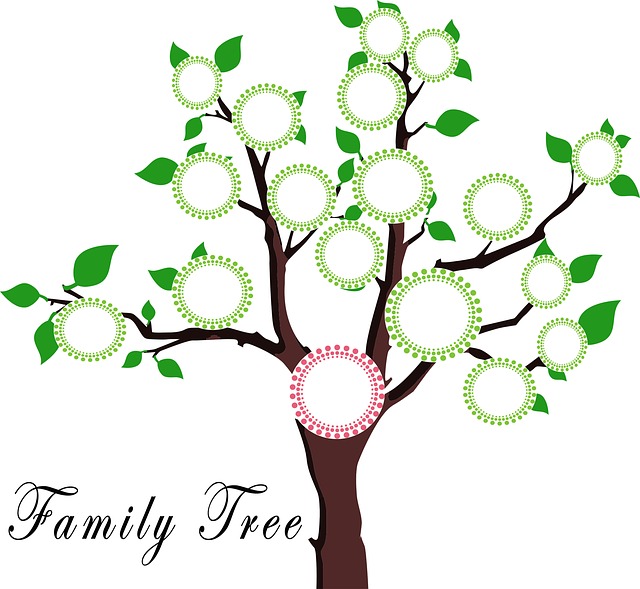Who we are has a huge bearing on how we look at the world. The traits we might have inherited, the way we think, the way our lives are– everything that we are in the present can trace its roots far into the past.
Most of us have some idea of our immediate family, but know relatively little about those further back in time. We might have heard stories about a great-grandparent, but for the most part, that’s as far back as our knowledge of our family history goes. Have you ever been curious about your ancestors, those that are far from living memory, but whose choices will have nevertheless had an influence on your life?
Researching your family tree — for which the technical name is genealogy – is a wonderful hobby for a variety of reasons. In fact, there are so many reasons to delve into the far-off branches, let’s list them:
- It connects you with the past. We all know we are the product of something; of people who had hopes and dreams, but who we have no chance of ever meeting or talking with. While you might never be able to meet your ancestors, delving into their lives and seeing how they connect can be a wonderful way of touching base with this history.
- It gives you more of an insight into your life. Have you ever wondered why your family is the way it is? Genealogy can provide the answer to that, reaching far beyond living memory to see how events have influenced your family over the generations.
- It’s a non-stop hobby. There is a point with a variety of hobbies where you’re kind of… done. You’ve achieved everything that you’re going to be able to do; there’s only so many winter blankets you can knit or art collages you can use for Christmas cards! However, with genealogy, you’re never going to run out of things to learn about. If you exhaust your own family tree, then you can move on to your partner’s, or follow different branches to potentially trace relatives you didn’t know you had.
- It connects you with distant family. Maybe your neighbor is actually your sixth-cousin; perhaps you went to school with someone you shared a common ancestor with. Discovering these links can be incredibly exciting, potentially even opening up your life to new family that are still alive. Genealogy doesn’t just connect you to the past; it can connect you better in the present, too.
Of course, genealogy is not just a hobby for you– it’s a study that can be hugely beneficial for children also. If you involve your kids in your family tree research, they will experience all of the high points as listed above, but also a few extras that could enrich them in a variety of different ways:
- Genealogy gives children a better understanding of history. For the most part, studying history is rather dry; it’s facts, figures, words on a page, the occasional grainy photograph. It can be tough for kids to really relate to the events of the past, and as a result, it’s an area of learning they tend to find frustrating rather than enthralling. However, when you’re learning about people that your kids are directly related to, history becomes more grounded, more real. This could open up a whole new area of academic intrigue for your children, as well as improve their research abilities.
- Genealogy gives you many day trips to enjoy. Where does your family hail from? How far back can you trace them? If you find members of your family who didn’t come from your hometown, there’s plenty of fun daytrips in your future as you explore the areas where members of your family once called home. Of course, tracing your family locations doesn’t just restrict you to daytrips either– you might discover your family roots in Scotland, for example, giving you an opportunity for a summer holiday with an added familial element!
Given the myriad benefits of genealogy, you might be wondering how you should begin. Let’s investigate a few of the starting points that can help you begin to connect the dots between your family’s past and your present.
STEP ONE: Gather Information
Your best resource for starting on this journey is the older members of your family. Visit with them and ask for details, as many as they can remember. Here are a few questions that will help you move on to step two:
- What were your parents’ names?
- What did they do for a living?
- What are the names of your Aunts and Uncles?
- Do you know your grandparents’ names?
- Do you know where your parents (or grandparents) were born?
These questions give you a jumping off point to start researching back further.
STEP TWO: Check Census Data
Let’s say that you know the name of your grandmother’s grandmother. You now need to locate her in the census data from the time of her life. You can do this online; genealogy no longer involves going to pore over old records in musty collection rooms of local offices!
When you have found her, you will find a whole new set of information. The name of her husband and children will be listed. You now have a choice as to the next steps you take.
STEP THREE: Choose A Branch
Trying to research an entire family tree is nigh-on impossible. Instead, you need to pick a specific branch to research. So, using the method above, you have found your great-great-grandmother. You can now choose to follow her family tree, or the family tree of her husband; it’s a recipe for madness if you try to follow them both at the same time.
Select which person you’re going to research further into, and then proceed.
STEP FOUR: Trace Births, Deaths, and Marriages
If you choose to research your great-great-grandmother, you now need to go further back in time and find her birth record. This will give you the name of her parents. Repeat step three; select which person you’re going to research deeper into. You can then go and find their birth record, and slowly but surely, your family tree will begin to span the centuries.
At some point, you will likely hit a dead end. You will not be able to trace the records you need to continue moving back in time. Don’t panic when that happens; it’s inevitable, as olden day record keeping was nothing compared to what it is now. At this point, just go back down the family tree and research the next branch. Here’s an example of how this works:
- You find your great-great-grandmother and your great-great-grandfather in the marriage records.
- As per step three, you choose one person to follow. You choose your great-great-grandmother.
- You find her birth record.
- You find the name of her parents from the birth record.
- You cannot find birth records of either of her parents, due to immigration, poor record keeping, or incomplete data.
- So, rather than give up, you move back down the tree back to your great-great-grandfather.
- You find his birth record… and continue on from there.
With all of these different avenues to pursue, you could spend your entire life researching your family tree and you wouldn’t even come close to figuring the whole thing out!
Have any questions? That’s pretty standard, so let’s go through a few of the most common.
“I have no older family members to ask for information. Can I still trace my family tree?”
Absolutely! Just use the information you do know, and begin the process of finding births, deaths, and marriages as a starting point. Information from older relatives isn’t essential; it’s just helpful. You can use the likes of https://www.afterlife.co to help you track down more recent deaths that may be related to you, then switch to checking through census data as you move further back in time.
“How far back is it possible to track?”
That depends entire on your circumstances. Amateur genealogists have been able to trace their roots back to the 17th century as described on http://www.reddit.com, and it’s possible to go even further than that. However, in most cases you will need to visit the places your ancestors lived to go that far back– a lot of older records have not been digitized.
“What if I find something in my family tree that I don’t like?”
Sadly, this can happen, so it’s worth discussing. Before beginning your research, you need to ask yourself how you’re going to feel if you discover your family owned slaves or that you have a murderous relative. Bear in mind that this information has no bearing on you, but if you don’t think you could cope with finding less-than-savory information, genealogy probably isn’t for you. However, bear in mind that the vast majority of family trees won’t have anything so problematic to be discovered!
“Should I only check births, deaths, and marriages?”
No, these are usually starting points from which you can investigate further. You can also check hospital admissions, government data, or research whether your family owned businesses at any point.
So, do you think you might be tempted to give researching your family tree a go?





